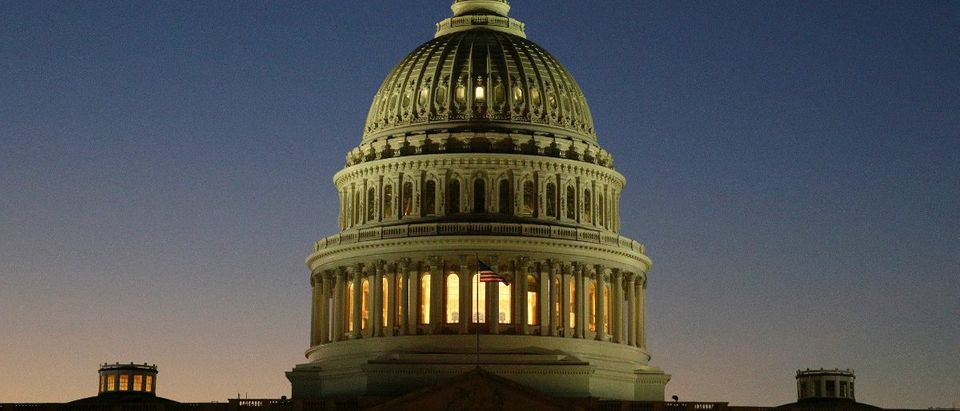There is a movement slowly sweeping the nation from coast to coast: the American people, influential pundits, and an increasing number of the nation’s editorial boards want Congress to break its last decade and a half of behavior by reclaiming the war-making power they have willingly handed over to the executive branch.
Ironically, it was the actions of President Trump — striking a Syrian government target without prior congressional authorization or even significant consultation — that could nudge Republican and Democratic lawmakers just enough to finally begin debating the life-and-death matter of war and peace.
Indeed, constitutional scholars and historians who have been urging Congress for years to fulfill its sacred duty under the U.S. Constitution to declare war — people like Yale University’s Bruce Ackerman, Harvard University’s Jack Goldsmith, and Boston University’s Andrew Bacevich — are no longer confined on an island alone, surrounded and drowned out by a sea of voices proclaiming that the president has all the authority he needs to wage war on behalf of our nation.
Congress hasn’t seriously debated an authorization for the use of military force since the fall of 2002, a time when the Bush administration sought congressional authority to take military action against Saddam Hussein’s regime. Whatever one thinks about the decision to invade Iraq, legislators at least performed their constitutional duty and debated the issue, in full view of the American people, months before the U.S. Air Force began its initial wave of bombings. By the time offensive operations occurred in March 2013, the U.S. pilots doing the bombing and the U.S. soldiers making a bee-run for Baghdad had comfort knowing that the American people and the elected officials who represented them supported their mission.
For the next 14 years, and continuing to this very day, the legislative branch has for all intents and purposes been M.I.A. on war-related issues. Attempts to re-introduce Congress into the game have been routinely dismissed by congressional leadership as either unnecessary intrusions into the president’s powers, castigated as a partisan exercise to embarrass members of the other political party, or simply unnecessary from a constitutional standpoint.
Fortunately, the American people understand what’s going on here; the unwillingness to embrace a war debate has everything to do with running away from a difficult vote that could jeopardize their political careers if a conflict turns out badly. If realists used the Iraq war as an opportunity to introduce some great power politics into the U.S. foreign policy debate, lawmakers used the war as an opening to keep Congress away from the subject altogether.
The American people have had enough. Many look at our troops and marvel at the way they perform their jobs and carry out their orders, despite constant risk to their physical safety. They see their elected officials in the exact opposite light: people in three-piece suits, collecting a hefty six-figure salary every year from the American taxpayer, too timid or scared to do what they are constitutionally required to do — give the president authority before he starts throwing Tomahawk missiles across the Mediterranean Sea. When a 39 percent plurality of Americans believe the president should be impeached if he “doesn’t get congressional approval before committing the U.S. to military action in foreign countries,” one can see how angry the American people have become.
The Founders of the Republic couldn’t have been any clearer: a single individual shouldn’t have all of the power to send young Americans into hostilities overseas. The legislative branch, therefore, declares war, and the president executes that war if he’s given approval from America’s elected representatives to do so. Only under very limited circumstances — a direct or imminent attack on the U.S. or its people — can the president use military force without first receiving Congress’s approval. We have gotten far beyond the law and the intentions of the Founders and closer to a norm where the president doesn’t even bother to consult with Congress before ordering military activity. And key members of Congress, sadly, seem ok with it.
In the Year 2017, we are far, far beyond executive overreach with regard to war. It’s not too late for Congress to redress this constitutional imbalance, but it can only occur if lawmakers assert their constitutional prerogatives, placing the rule of law above the selfish, narrow self-interest of avoiding difficult votes.
So far, Congress has been disappointing the American people in a resounding fashion. And the American people want Congress to do its job and fulfill its duties—nowhere is this more important than the solemn act of authorizing war.
Daniel DePetris is a fellow at Defense Priorities.


